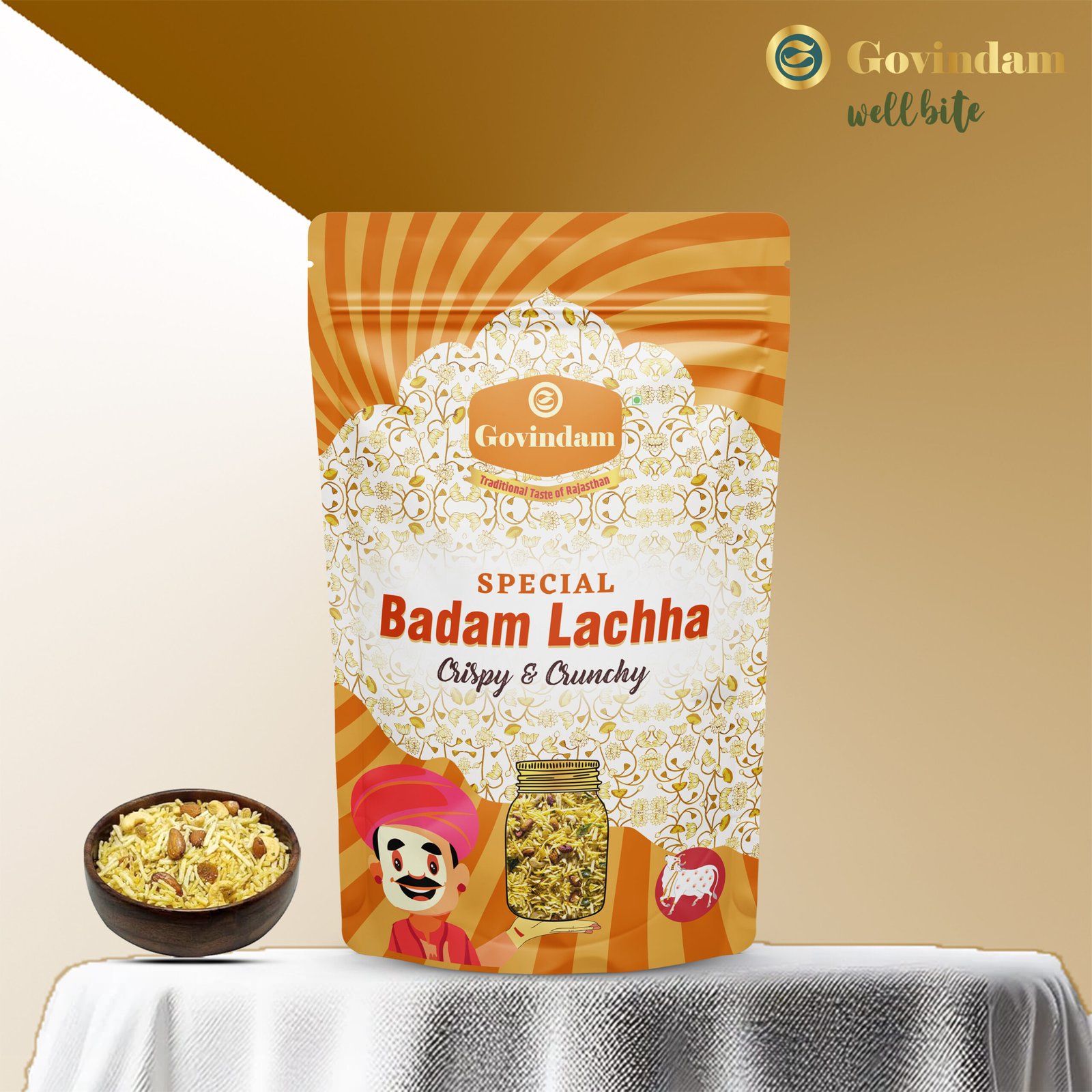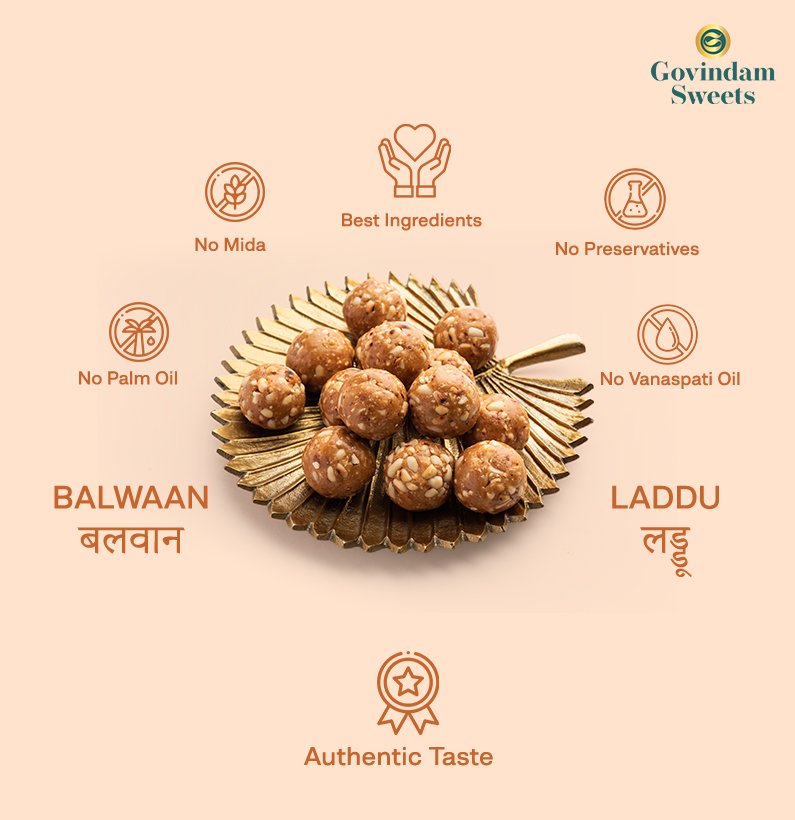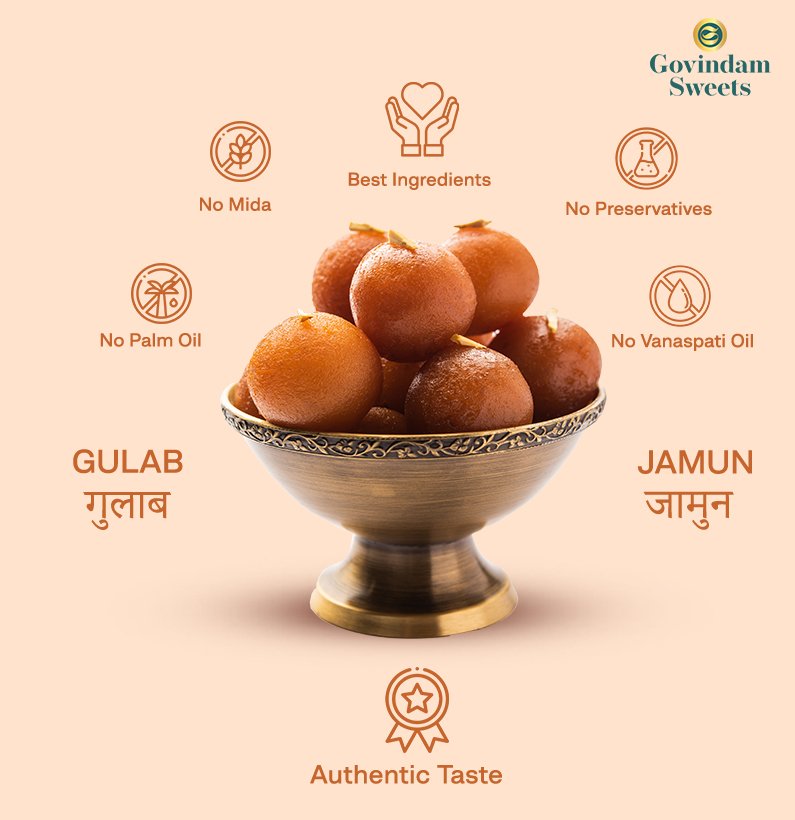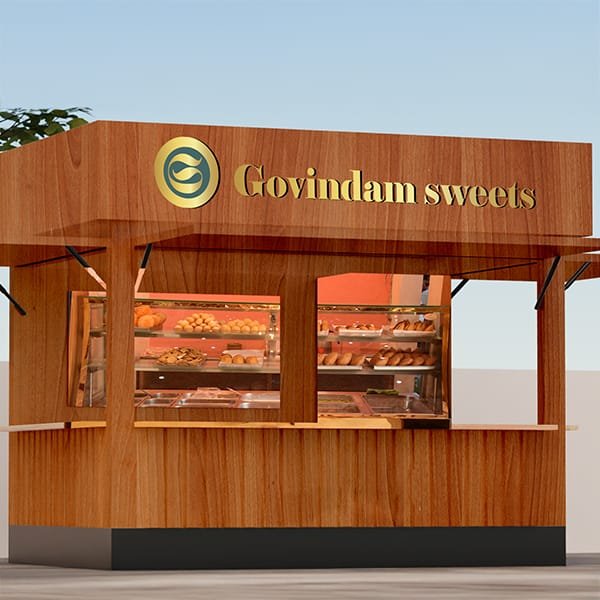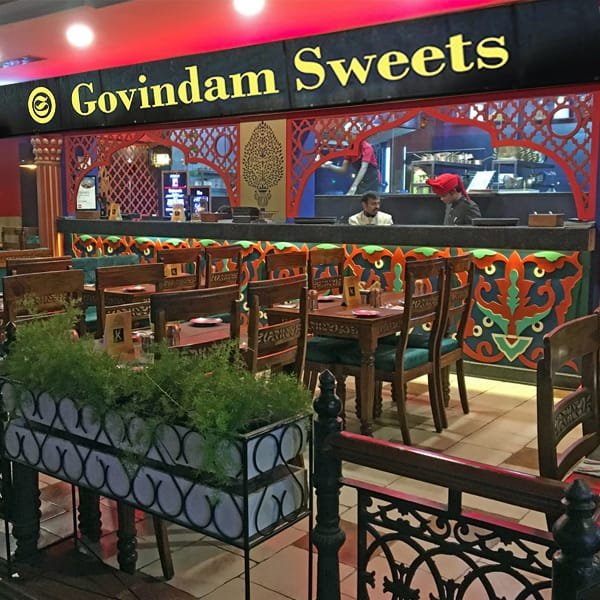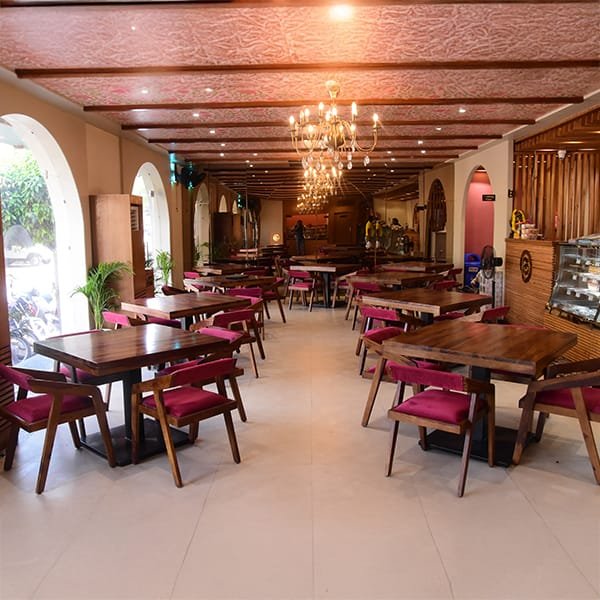
Posts
Discover Sweet Success of Owning a Sweet Shop Franchise

Explore sweet shop franchise opportunities offering proven business models, established brand recognition, comprehensive training, and ongoing support. Learn about investment requirements, profitability potential, location strategies, and operational excellence in traditional Indian sweets business. Discover how franchise partnerships create entrepreneurial success through authentic confectionery traditions.
Discover the Sweet Success of Owning a Sweet Shop Franchise
Introduction: The Opportunity in Sweet Shop Franchise Business
In India’s rapidly expanding retail landscape, few business opportunities combine cultural heritage, consistent demand, and proven profitability quite like a sweet shop franchise. Traditional Indian sweets remain essential elements of celebrations, festivals, gifting, and daily consumption across all demographics, creating stable market demand unaffected by economic fluctuations that impact discretionary spending categories. This resilience, combined with growing disposable incomes, increasing celebration expenditures, and expanding gifting culture, positions the sweet shop franchise sector as attractive investment opportunity for entrepreneurs seeking established business models with cultural relevance and financial promise.
The evolution from independent sweet shops to organized franchise models reflects broader retail modernization trends while preserving traditional confectionery excellence. A sweet shop franchise offers aspiring entrepreneurs significant advantages over starting independent operations—established brand recognition attracting immediate customer trust, proven operational systems reducing trial-and-error learning costs, bulk purchasing power improving margins, comprehensive training accelerating competency development, and ongoing support addressing challenges that might overwhelm independent operators. These benefits explain why franchise models increasingly dominate India’s organized sweet retail sector, with successful brands expanding nationwide through partnerships with entrepreneurial individuals seeking business ownership within supportive frameworks.
Govindam Sweets exemplifies successful sweet shop franchise development, combining decades of Jaipur confectionery excellence with modern franchise systems supporting partner success. Our authentic Rajasthani specialties including Ghewar and Balwan Laddu, reputation for quality and tradition, and comprehensive franchise support create compelling opportunity for entrepreneurs passionate about authentic sweets and interested in proven business models. This guide explores what makes successful sweet shop franchise operations, how to evaluate opportunities, and why franchise partnerships offer superior paths to sweet retail business success compared to independent ventures facing significant obstacles without organizational support structures.
Understanding the Sweet Shop Franchise Model
What Is a Sweet Shop Franchise?
A sweet shop franchise represents business relationship where established sweet brand (franchisor) grants entrepreneurs (franchisees) rights to operate retail locations using the brand’s name, products, systems, and support in exchange for initial franchise fees and ongoing royalties. This arrangement benefits both parties—franchisors expand market presence without capital investment in company-owned stores while generating revenue through fees and royalties, while franchisees access proven business models, established brands, and ongoing support significantly improving success probabilities compared to independent startups facing higher failure rates.
The sweet shop franchise model typically includes comprehensive packages encompassing brand usage rights, standardized product recipes and preparation training, operational systems and procedures, marketing and promotional support, supply chain access, site selection guidance, store design specifications, and ongoing business consultation. This comprehensive approach distinguishes true franchise relationships from mere licensing agreements or supplier arrangements lacking depth of support characterizing genuine franchise systems.
Types of Sweet Shop Franchise Arrangements
Sweet shop franchise opportunities exist in various formats serving different investment capacities and involvement levels. Full-format franchises involve complete retail stores operating under franchisor’s brand with comprehensive product ranges and full operational systems—the most common and typically most successful arrangement. Kiosk or cart franchises offer smaller footprint options with limited product ranges suitable for high-traffic locations like malls, railway stations, or airports where full stores prove impractical. Master franchise arrangements grant rights to develop entire territories, essentially becoming regional franchisors recruiting and supporting sub-franchisees within designated areas.
Each sweet shop franchise format presents distinct investment requirements, operational complexities, and profitability profiles. Prospective franchisees should carefully evaluate which arrangement aligns best with their capital availability, desired involvement levels, risk tolerance, and long-term business objectives rather than automatically defaulting to any particular format.
Key Components of Successful Franchise Systems
Successful sweet shop franchise systems share common characteristics distinguishing them from less effective programs. Proven business models with demonstrated profitability across multiple locations provide confidence that success patterns replicate in new markets under proper implementation. Comprehensive training programs equipping franchisees with necessary operational knowledge, from product preparation through customer service and business management, accelerate competency development beyond what independent operators typically achieve through self-education.
Strong brand recognition creates immediate customer awareness and trust, substantially reducing marketing costs and customer acquisition challenges facing unknown independent operations. Ongoing support systems including field visits, troubleshooting assistance, continued training, and operational consultation help franchisees navigating challenges that might otherwise prove overwhelming. Quality control systems maintaining product consistency across all locations preserve brand reputation benefiting entire franchise network through collective success rather than individual location failures undermining broader perceptions.
Benefits of Investing in a Sweet Shop Franchise
Established Brand Recognition and Customer Trust
Perhaps the greatest advantage of sweet shop franchise investment lies in immediate access to established brand equity that independent startups spend years building from scratch. Customers recognize trusted sweet brands, carry positive associations from previous experiences or reputation awareness, and demonstrate purchase willingness without the extensive trial overcoming required for unknown operations. This brand recognition translates directly into faster revenue generation, lower customer acquisition costs, and more predictable performance compared to independent ventures requiring substantial time and marketing investment building awareness and trust.
For Govindam Sweets franchise partners, our decades-long reputation for authentic Rajasthani confections, quality consistency, and traditional excellence creates immediate market credibility in new locations. Customers familiar with our brand from Jaipur origins or other franchise locations transfer their trust and preference to newly opened outlets, accelerating business establishment and reducing risks associated with market entry and customer development phases where many independent businesses fail.
Proven Business Model Reducing Risk
Starting independent sweet shops involves navigating countless decisions regarding product mix, pricing strategies, operational procedures, marketing approaches, and business systems—decisions where inexperienced entrepreneurs frequently make costly mistakes. A sweet shop franchise eliminates much of this trial-and-error learning by providing proven systems developed through years of operational experience across multiple locations. The franchise model’s recipes, procedures, pricing structures, and operational protocols have demonstrated success, significantly reducing execution risks compared to independent operators developing systems without benefit of collective experience.
This risk reduction proves particularly valuable in food retail where product quality consistency, inventory management, seasonal demand fluctuations, and operational efficiency directly impact profitability. The franchise system’s established approaches to these challenges provide substantial advantages over independent operators solving identical problems through expensive experimentation.
Comprehensive Training and Ongoing Support
Quality sweet shop franchise programs invest significantly in franchisee training, recognizing that partner success depends on operational competency development. Initial training typically covers product preparation techniques, quality control procedures, inventory management systems, customer service standards, marketing implementation, financial management, and staff hiring and training. This comprehensive education accelerates capability development far beyond what most entrepreneurs achieve independently through books, consultants, or self-directed learning.
Beyond initial training, ongoing support distinguishes superior sweet shop franchise systems from minimal programs essentially selling brand licenses without continued partnership. Regular field visits from franchise support teams, troubleshooting assistance addressing operational challenges, continued training on new products or procedures, marketing guidance adapting to local market conditions, and peer networking opportunities with other franchisees all contribute to long-term success and continuous improvement that independent operators rarely achieve without similar external support structures.
Economies of Scale in Purchasing
Sweet shop franchise networks leverage collective purchasing power negotiating favorable pricing with suppliers for ingredients, packaging materials, equipment, and other operational inputs. These volume discounts translate directly to improved margins impossible for individual small operators purchasing at retail or small-wholesale quantities. The cost advantages accumulate across all inputs, creating substantial profitability improvements over independent operations paying higher prices for identical materials.
Additionally, franchise networks often establish captive or preferred supplier relationships ensuring consistent ingredient quality, reliable availability, and coordinated delivery schedules that small independent operators struggle achieving. This supply chain optimization beyond mere pricing advantages further enhances franchise operational efficiency and reliability.
Marketing and Promotional Support
Effective marketing requires expertise, creativity, and investment that individual sweet shop owners often lack. Quality sweet shop franchise systems provide professional marketing support including brand advertising campaigns, promotional materials, social media content, seasonal campaign concepts, and local marketing guidance helping franchisees attracting and retaining customers. Some franchise systems invest in regional or national advertising creating brand awareness benefiting all locations collectively, distributing marketing costs across the network rather than requiring each location funding independent campaigns with limited reach and impact.
The marketing support proves particularly valuable for entrepreneurs without marketing backgrounds who might otherwise struggle developing effective promotional strategies, creating professional materials, or leveraging digital marketing channels increasingly important for retail success in modern markets.
Evaluating Sweet Shop Franchise Opportunities
Researching Franchisor Reputation and Track Record
Successful sweet shop franchise investment begins with thorough franchisor evaluation beyond marketing materials and sales presentations. Research brand reputation through customer reviews, online presence assessment, and market perception analysis revealing whether brands genuinely deliver quality and value or merely project these qualities through marketing without substantive backing. Investigate franchis or track records including years in operation, number of franchise locations, growth trajectory, franchisee retention rates, and any legal disputes or regulatory issues suggesting potential problems.
Speaking directly with existing franchisees provides invaluable insights unavailable through official channels. Ask about actual versus projected revenues, support quality, relationship dynamics with franchisor, challenges encountered, and whether they’d invest again knowing what they now understand. Franchisees generally provide honest assessments, particularly those operating long enough to experience full business cycles including challenges inevitably arising in any business relationship.
Understanding Financial Requirements and Projections
Comprehensive financial analysis proves essential before sweet shop franchise commitments. Understand total investment requirements including franchise fees, equipment purchases, initial inventory, working capital reserves, real estate deposits, and any other startup costs creating complete investment picture rather than focusing narrowly on franchise fees alone. Review franchisor’s financial performance representations (Item 19 in Franchise Disclosure Documents where provided) understanding typical revenues, operating costs, and profitability across franchise network.
Develop independent financial projections based on conservative assumptions rather than accepting franchisor projections uncritically. Model various scenarios including slower-than-expected customer development, higher operating costs, competitive pressures, and economic downturns testing whether business remains viable under less optimistic conditions. Evaluate return on investment timelines, break-even analyses, and cash flow projections ensuring financial viability aligns with personal investment objectives and risk tolerance.
Assessing Location Requirements and Territory Rights
Location significantly impacts sweet shop franchise success, making site selection critical decision point. Understand franchisor’s site selection criteria and assistance provided identifying suitable locations. Evaluate whether territory rights protect your market area from cannibalization by additional franchise locations, or whether unlimited franchising within territories creates internal competition reducing individual location profitability. Protected territories provide greater security though sometimes cost more through higher franchise fees compensating for limited expansion density.
Consider demographic requirements, traffic patterns, visibility needs, proximity to complementary businesses, parking availability, and real estate costs affecting viability in different location types. Some sweet shop franchise concepts work well in malls, others in standalone locations, and still others in mixed-use developments—understanding optimal location profiles prevents expensive mistakes selecting inappropriate sites regardless of other business aspects.
Reviewing Franchise Agreement Terms Carefully
Franchise agreements represent legally binding contracts governing entire relationship, making careful legal review essential before signing. Engage experienced franchise attorneys examining agreements identifying potentially problematic terms, explaining obligations and restrictions, and negotiating modifications where possible. Key consideration areas include franchise duration and renewal terms, royalty and fee structures, required purchases from specific suppliers, operating standards and restrictions, termination conditions, transferability provisions, and post-termination obligations including non-compete restrictions.
Understanding these contractual elements prevents unpleasant surprises after operations commence, when dissatisfaction with terms creates regret but no practical remedy short of costly contract exit or continued operation under disagreeable conditions. The relatively modest legal review investment prevents potentially catastrophic mistakes through inadequate understanding of long-term obligations and constraints.
Evaluating Personal Fit with Franchise System
Beyond financial and legal considerations, assess personal compatibility with sweet shop franchise operation. The business requires dedication to quality, customer service orientation, attention to operational details, willingness to follow established systems rather than constantly innovating, and ability managing staff and daily operations. Some entrepreneurs excel within franchise structures providing guidance and support, while others chafe under restrictions preferring independent operation despite greater risks and challenges.
Honest self-assessment regarding your interests, skills, work style preferences, and lifestyle objectives helps determining whether sweet shop franchise ownership aligns with personal realities rather than idealized entrepreneurship visions diverging substantially from actual operational demands. Franchise ownership involves real work, operational challenges, financial risks, and commitment extending beyond romantic notions of business ownership often featured in franchise marketing materials.
Govindam Sweets Franchise Opportunity
Our Heritage and Brand Strength
Govindam Sweets brings decades of authentic Rajasthani confectionery excellence to our sweet shop franchise program, combining traditional heritage with modern franchise systems supporting partner success. Our reputation for quality authentic preparations, cultural authenticity preserving traditional recipes and methods, and commitment to ingredient quality and operational standards creates strong foundation for franchise expansion. Partners benefit from brand recognition particularly strong in Rajasthan while growing in other markets as our franchise network expands, leveraging our established reputation accelerating new location success.
Our specialization in authentic Rajasthani sweets including signature items like Ghewar and Balwan Laddu provides differentiation in markets saturated with generic sweet shops lacking distinctive identities. This cultural authenticity appeals to customers seeking genuine traditional preparations rather than commercialized alternatives, creating competitive advantage supporting premium positioning and customer loyalty difficult for undifferentiated competitors achieving.
Comprehensive Support Systems
Our sweet shop franchise program provides extensive support ensuring partner success through multiple dimensions. Initial training covers all operational aspects from product preparation techniques maintaining our quality standards through customer service approaches reflecting our brand values. Ongoing field support includes regular visits from experienced team members assessing operations, troubleshooting challenges, reinforcing best practices, and ensuring consistency across all franchise locations.
Marketing support provides professional promotional materials, seasonal campaign concepts, social media guidance, and local marketing strategies helping franchisees building customer bases and maintaining engagement. Supply chain support ensures consistent access to quality ingredients and materials through established supplier relationships leveraging collective purchasing power. Business management consultation addresses financial planning, staff management, operational efficiency, and strategic planning helping franchisees navigating both startup phases and ongoing operations.
Investment and Financial Considerations
Our Franchise Details page provides comprehensive information regarding investment requirements, fee structures, and financial projections helping prospective partners making informed decisions. The sweet shop franchise investment with Govindam Sweets varies based on location size, market characteristics, and specific operational requirements, with detailed breakdowns provided during serious discussions with qualified candidates.
We maintain transparency regarding financial expectations, providing realistic performance data from existing franchise locations helping candidates developing informed projections rather than unrealistic optimism potentially leading to disappointment. Our goal involves creating genuinely successful franchise partnerships rather than merely maximizing franchise sales, recognizing that network success depends on individual franchise profitability and satisfaction creating positive growth momentum.
Ideal Franchise Partner Profile
Successful Govindam Sweets franchise partners typically demonstrate several common characteristics. Commitment to quality and traditional authenticity aligns with our brand values and operational standards. Customer service orientation ensures guest experiences reflect our hospitality traditions. Business acumen sufficient for managing daily operations, financial oversight, and staff supervision proves essential for sustainable success. Willingness to follow established systems rather than constantly deviating maintains brand consistency benefiting entire network.
Capital adequacy ensuring not just initial investment but also working capital sustaining operations through startup phases prevents premature failures from undercapitalization regardless of otherwise sound business fundamentals. Finally, realistic expectations understanding that sweet shop franchise ownership involves real work, challenges, and commitment rather than passive investment generating automatic returns without substantial personal involvement.
Success Factors for Sweet Shop Franchise Operations
Location Selection and Market Analysis
Even excellent sweet shop franchise concepts fail in poor locations, making site selection perhaps the single most important success factor. Ideal locations combine high visibility attracting spontaneous customers, adequate traffic volumes providing customer base, convenient parking facilitating purchases particularly for bulk orders, proximity to complementary businesses creating synergies, and lease terms allowing reasonable profitability given revenue potentials and operating costs.
Thorough market analysis examines local demographics, income levels, cultural preferences, competitive landscape, and growth trends determining whether proposed locations offer genuine potential or merely appear attractive superficially. The analysis should be rigorous and objective rather than wishful thinking justifying predetermined location desires, with willingness to decline apparently attractive opportunities if analysis reveals problematic fundamentals.
Maintaining Quality and Consistency
Quality consistency represents non-negotiable requirement for sweet shop franchise success. Customers expecting the same excellent taste, freshness, and presentation across all franchise locations and all visits lose confidence when experiences vary, damaging both individual locations and collective brand reputation. Maintaining consistency requires rigorous adherence to established recipes and procedures, proper staff training and supervision, quality ingredient sourcing without shortcuts compromising standards, and systematic quality control catching deviations before they reach customers.
The discipline maintaining these standards amid daily operational pressures, cost considerations tempting shortcuts, and staff turnover requiring continual retraining distinguishes successful franchises from struggling operations gradually degrading quality until customer loyalty erodes beyond recovery. Quality consistency may seem obvious but proves remarkably difficult maintaining consistently, explaining why many franchises fail despite apparently sound concepts and adequate resources.
Effective Staff Recruitment and Management
Sweet shop franchise success depends substantially on staff quality and management. Skilled preparation staff maintaining product quality, knowledgeable sales staff providing excellent customer service, and reliable support staff ensuring smooth operations collectively determine customer experiences and operational efficiency. Recruiting these individuals, providing proper training, maintaining motivation, and managing performance represent ongoing challenges requiring attention and capability.
High staff turnover particularly plagues retail operations, with recruitment and training costs, quality variations during learning curves, and customer relationship disruptions all impacting profitability and satisfaction. Creating positive work environments, offering fair compensation, providing growth opportunities, and maintaining effective management practices reduces turnover and improves performance, though requires commitment and skill many franchise owners initially lack and must develop through experience and learning.
Local Marketing and Community Engagement
While franchise systems provide marketing support, local implementation and community engagement remain individual franchisee responsibilities significantly impacting success. Active participation in community events, strategic local partnerships, responsive social media engagement, and grassroots marketing build awareness and loyalty beyond what system-wide campaigns achieve alone. Understanding local market characteristics, cultural nuances, and seasonal patterns enables customizing approaches within franchise guidelines maximizing local relevance and effectiveness.
The most successful sweet shop franchise operators become community fixtures rather than merely commercial operations, with personal relationships, reputation for reliability and quality, and genuine engagement creating competitive advantages difficult for distant competitors or impersonal chains replicating. This community integration requires time, effort, and authentic commitment but generates returns through customer loyalty and word-of-mouth marketing no paid advertising can match.
Financial Management and Operational Efficiency
Profitable sweet shop franchise operation demands sound financial management. Careful inventory control prevents waste from spoilage while ensuring adequate supplies meeting demand without stockouts frustrating customers. Labor scheduling balances adequate staffing ensuring quality service with cost control preventing overstaffing reducing profitability. Pricing strategies maximize revenues while maintaining competitive positioning and value perceptions. Expense management identifies opportunities reducing costs without compromising quality or service.
Many franchise owners enter business without strong financial backgrounds, making financial management areas where ongoing learning and attention prove necessary. Utilizing franchise system resources, engaging professional accountants, implementing proper financial systems, and maintaining disciplined oversight prevents common pitfalls like cash flow crises, inadequate reserves, or gradual margin erosion undermining otherwise sound operations.
Market Potential and Growth Opportunities
Indian Sweet Market Size and Trends
India’s sweet market represents massive opportunity with organized retail capturing increasing share from traditional unorganized sector. Growing middle class, rising disposable incomes, expanding gifting culture, increasing celebration expenditures, and premiumization trends all favor quality-focused sweet shop franchise operations positioned capturing these favorable dynamics. The market demonstrates resilience even during economic downturns as sweets remain cultural essentials rather than discretionary luxuries easily eliminated during budget tightening.
Regional diversification creates opportunities as successful brands expand beyond origin regions into new markets. Urban concentration in tier-1 and tier-2 cities provides ready markets, while tier-3 cities and large towns represent underserved opportunities as retail modernization spreads beyond major metros. E-commerce integration expands addressable markets beyond physical store locations, though requires different capabilities and approaches than traditional retail operations.
Corporate and Bulk Order Opportunities
Beyond individual retail sales, corporate gifting and bulk orders represent significant revenue opportunities for sweet shop franchise operations. Festival seasons particularly see extensive corporate orders for client appreciation, employee recognition, and business relationship cultivation. Wedding season brings substantial bulk orders for guest distributions. These corporate and bulk channels typically offer better margins than retail sales while providing larger transaction values improving efficiency.
Developing corporate relationships requires dedicated effort and relationship management beyond standard retail operations but creates sticky revenue streams with repeat business and referral potential. Franchise locations actively cultivating corporate channels often achieve superior profitability compared to purely retail-focused operations, though requires capabilities and commitment not all franchise owners naturally possess or wish to develop.
Online and Delivery Integration
Modern sweet shop franchise success increasingly requires online presence and delivery capabilities meeting customer expectations for convenience and accessibility. E-commerce platforms extend market reach beyond physical location trade areas, enabling serving customers unable or unwilling visiting stores personally. Delivery services through aggregators or proprietary systems accommodate customer preferences while potentially capturing additional occasions when sweets are desired but store visits prove impractical.
Successfully integrating digital channels requires different capabilities than traditional retail including order management systems, packaging suitable for shipping, quality maintenance during transport, and customer service handling remote interactions. Franchise systems increasingly provide support and infrastructure for these capabilities, though implementation quality and commitment vary significantly across individual franchise locations affecting results achieved through these channels.
Common Challenges and How to Overcome Them
Initial Customer Acquisition
New sweet shop franchise locations face customer awareness and trial challenges despite brand recognition. Local competitors with established customer relationships, consumer inertia preferring familiar options, and initial unfamiliarity with new locations all create obstacles requiring dedicated effort overcoming. Grand opening promotions, aggressive initial marketing, exceptional service creating positive word-of-mouth, and patience through inevitable startup periods all contribute to eventually establishing customer base, though process takes longer and requires more investment than many new franchisees anticipate.
Understanding these challenges and maintaining adequate working capital sustaining operations through lower-revenue startup phases prevents premature failures from impatience or undercapitalization. Franchise systems often provide launch support specifically addressing customer acquisition challenges during critical early periods determining long-term trajectory.
Managing Seasonal Demand Fluctuations
Sweet sales demonstrate pronounced seasonality with peaks during festival periods, wedding seasons, and celebrations contrasted against quieter periods requiring different inventory, staffing, and marketing approaches. Managing these fluctuations requires sophisticated planning maintaining adequate capabilities serving peak demands without excessive capacity during slow periods creating financial drains. Inventory management, staff scheduling flexibility, and strategic promotions addressing slow periods all help smoothing seasonal variations improving year-round profitability.
Some seasonality proves inevitable and acceptable given cultural patterns driving demand, but successful sweet shop franchise operators work minimizing negative impacts through active management rather than passively accepting extreme variations as unavoidable facts.
Maintaining Profitability Amid Rising Costs
Ingredient costs, labor expenses, real estate charges, and operational expenses tend rising over time, requiring ongoing attention maintaining profitability amid these pressures. Periodic pricing adjustments, continuous efficiency improvements, waste reduction initiatives, and revenue enhancement through new products or services all contribute to profitability maintenance requiring active management rather than assuming initial economics persist indefinitely without attention.
Franchise systems often provide guidance on cost management and efficiency improvement drawing on collective network experience, though implementation remains individual franchisee responsibility. The most successful operators continually seek improvements rather than maintaining static operations, recognizing that competitive markets and changing economic conditions demand ongoing adaptation.
Balancing Standardization and Local Preferences
Sweet shop franchise success requires balancing brand consistency with local market adaptation. Too rigid adherence to standardization may alienate local preferences and miss opportunities, while excessive deviation from brand standards undermines consistency and potentially confuses customers expecting uniform experiences. Finding appropriate balance involves understanding which elements require absolute consistency (quality standards, core product recipes, brand presentation) versus where flexibility serves better (product mix adjustments, local marketing, pricing within ranges).
Successful franchise systems provide guidance on these distinctions while individual franchisees exercise judgment implementing guidance appropriately for specific market contexts. This collaboration between system standards and local adaptation represents franchise model’s strength when working properly, though creates tension requiring ongoing negotiation and mutual understanding.
Frequently Asked Questions About Sweet Shop Franchise
Q: What is the typical investment required for a sweet shop franchise? A: Investment varies significantly based on location size, market, and specific franchise brand, typically ranging from ₹15-50 lakhs for established brands including franchise fees, equipment, initial inventory, and working capital. Detailed investment information is provided during serious discussions with franchisors.
Q: How long does it take to become profitable? A: Break-even timelines typically range from 6-18 months depending on location, market conditions, operational execution, and initial marketing effectiveness. Well-located operations with strong execution may achieve profitability faster while challenging locations or weak execution extend timelines.
Q: What ongoing fees do franchisees pay? A: Most sweet shop franchise systems charge ongoing royalty fees (typically 4-8% of revenues) and marketing fund contributions (typically 1-3% of revenues). These fees fund ongoing support, brand marketing, and system development benefiting all franchise locations collectively.
Q: Can I own multiple franchise locations? A: Many franchise systems encourage multi-unit ownership after demonstrating success with initial locations. Multi-unit franchisees often receive territory rights, preferential terms, and additional support given their larger investments and operational experience benefiting system expansion.
Q: What kind of training and support is provided? A: Quality franchise programs provide comprehensive initial training covering all operational aspects, plus ongoing support through field visits, continued education, troubleshooting assistance, and franchisee networking. Support quality varies significantly across franchise systems, making evaluation essential during selection.
Q: Do I need prior experience in the food industry? A: While food industry experience helps, many successful franchisees come from other backgrounds. Comprehensive training and ongoing support are designed to develop necessary capabilities, though business acumen, customer service orientation, and operational attention remain essential regardless of industry background.
Q: How is inventory managed in a franchise system? A: Franchise systems typically provide inventory management guidelines, approved supplier lists, and sometimes centralized ordering systems. Some systems require purchasing from designated suppliers ensuring consistency, while others allow more flexibility within quality specifications.
Q: What happens if the franchise agreement ends? A: Franchise agreement terminations require complying with contractual terms including typically ceasing brand usage, returning proprietary materials, and honoring non-compete restrictions preventing immediate competition. Planning for agreement renewals or transitions requires advance preparation avoiding operational disruptions.
Q: How much time commitment does franchise ownership require? A: Successful sweet shop franchise operations typically demand full-time owner attention, particularly initially. Some owners eventually transition to more supervisory roles as operations stabilize and capable managers develop, though complete absentee ownership rarely succeeds in retail food businesses.
Q: What are the main reasons sweet shop franchises fail? A: Common failure factors include undercapitalization, poor location selection, quality inconsistency, weak marketing and customer acquisition, inadequate staff management, and insufficient owner attention and commitment. Thorough preparation and realistic expectations help avoiding these pitfalls.
Conclusion: Your Path to Sweet Shop Franchise Success
The sweet shop franchise opportunity represents compelling path to business ownership combining cultural relevance, stable market demand, proven operational systems, and growth potential that independent startups struggle matching. For entrepreneurs passionate about traditional sweets, committed to quality and customer service, and interested in business models providing support and guidance while requiring substantial personal commitment and capability, franchise partnerships offer superior alternatives to independent ventures facing greater risks and challenges without organizational backing.
Govindam Sweets invites qualified entrepreneurs exploring sweet shop franchise opportunities to learn more about our program combining authentic Rajasthani heritage with modern franchise systems. Our decades of confectionery excellence, reputation for quality and tradition, comprehensive support infrastructure, and commitment to partner success create foundation for genuine franchise relationships benefiting both parties through mutual growth and prosperity. Visit our detailed Franchise Information page exploring investment requirements, support systems, and application processes, or contact us directly discussing whether our program aligns with your entrepreneurial aspirations and capabilities.
Beyond franchise opportunities specifically, explore our complete product range through our online platform discovering the authentic Rajasthani specialties and traditional preparations that make Govindam Sweets distinctive in competitive markets. Experience our Festival Special collections showcasing signature items including Ghewar and other traditional delicacies that attract loyal customers and differentiate our franchise locations from generic sweet shops lacking authentic identities.
The journey to sweet shop franchise ownership begins with education, careful evaluation, and informed decision-making. Whether ultimately choosing Govindam Sweets or other quality franchise systems, approaching franchise investment with realistic expectations, thorough due diligence, adequate capitalization, and genuine commitment maximizes success probabilities in rewarding yet demanding business requiring dedication, capability, and perseverance. The sweet success awaits those prepared investing time, resources, and energy building thriving operations serving communities with authentic quality confections honoring tradition while meeting contemporary standards—begin your franchise exploration journey today discovering whether this entrepreneurial path aligns with your personal goals, financial capacity, and lifestyle aspirations for meaningful business ownership in India’s vibrant traditional sweets sector.





